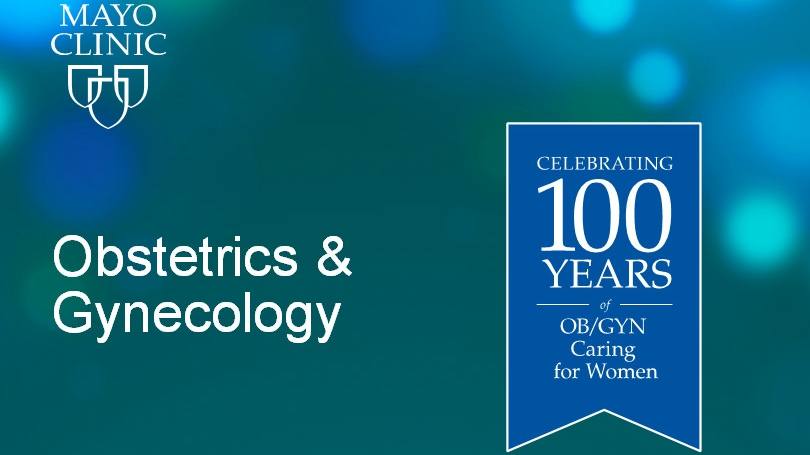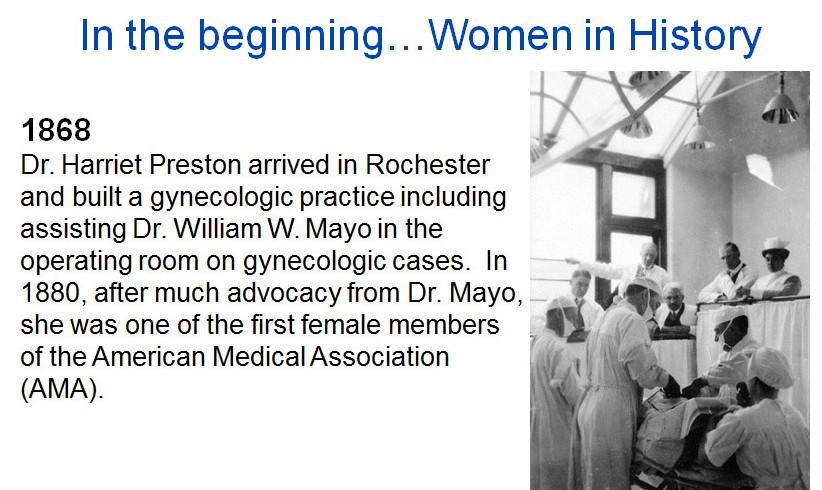-
Featured News
Women’s Wellness: 100 years of solutions, comfort and hope

Since this is International Women's Day, the Women's Wellness column is focusing on some of the progress made in women's health care.
Mayo Clinic's Department of Obstetrics and Gynecology celebrated its 100-year anniversary in 2017, and Dr. John Gebhart, a Mayo Clinic gynecologic surgeon, says it's important to acknowledge the many advances in medical and health care for women.

One important advancement, according to Dr. Gebhart, is oral contraception."The use of oral contraceptives not only helps in the prevention of pregnancy, but also in the management or the prevention of ovarian cysts, or menstrual bleeding issues, that commonly could afflict women," says Dr. Gebhart. "And look at where we are with a vaccine for cervical cancer. We can now inoculate young girls early on and help maybe even prevent that disease from ever occurring down the road."
Dr. Gebhart says minimally invasive surgery has been a tremendous advancement within gynecologic surgery and points out the importance of ultrasound therapy as a noninvasive technique to treat fibroids.

He also stresses the area of preventive measures, including Pap smear technology, which is a good screening tool to help detect and perhaps prevent cancer from ever developing.
Meanwhile, there are several niche specialties that are developing at Mayo.“Our vulvar dermatology clinic is staffed with gynecologists and dermatologists providing the best care of women who present with conditions related to the vulva," says Dr. Gebhart.
Genetics is another growing part of the practice. “How do we identify disease risks early on? How does it apply when counseling patients who are pregnant?” asks Dr. Gebhart. “What are their risks if the woman carries a certain gene mutation for her offspring, and, ultimately, how might that affect her risk from a cancer perspective?”
Watch: Dr. Gebhart discusses advances in women's health care.
Journalists: Broadcast-quality sound bites with Dr. Gebhart are in the downloads.
Early timeline for women's healthcare at Mayo Clinic
- Dr. W.W. Mayo first published about a tubular pregnancy in 1871.
- Dr. Christopher Graham was an internist who joined the Mayo brothers in 1898. He ran the “diagnostics section” of Mayo Clinic and performed obstetrics for the wives of members of staff and women who were in Rochester for medical consultation.
- Another internist, Dr. Robert D. Mussey, joined the Graham section in 1914 and began obstetric practice, leading to consolidation of inpatient obstetric practice in April 1917.
- In the same year- 1917 - Dr. Leda Stacey, an anesthesiologist, who had trained in the use of intra uterine Radium therapy for uterine fibroids established the Stacy section (Gynecology). Gynecologic surgery was performed primarily by the Mayo brothers, especially William Mayo, whose primary interest was abdominal, pelvic & Urologic surgery.
- Dr. William Mayo became the president of the American College of Surgeons in 1917, starting an illustrious Mayo presence that remains to this day.
Dr. Gebhart says the future for gynecologic care looks exciting. "Some things I think we can’t even imagine will occur in the development of therapies to help prevent disease. Currently, we think of treating disease when we identify it. I think the future will be about identifying ways to prevent that disease from ever occurring."
At a recent anniversary celebration Dr. Gebhart's colleague, Dr. Abimbola Famuyide, summarized the extent of the 100 year old practice like this:
"From the earliest scientific studies of ovarian hormone physiology in the 1920s to the exquisite fetal surgical interventions of today, our practice has been on the front edge of advances in our field. In between, the Counseller-Masson technique of abdominal & vaginal hysterectomy, Pratt dilators, Symmonds retractor, early studies of serum HCG & Ca125, development of chemotherapeutic regimens for ovarian cancer, upper abdominal surgery for optimal debulking for ovarian cancer, DES study-the longest funded NIH study, fetal blood transfusion, focused ultrasound ablation for fibroids, enhanced recovery after major gynecological cancers are just a few examples of how this practice has bent the arc of history in our specialty."
Dr. Gebhart says acknowledging the 100th anniversary has been special. "It’s important that we stop at points in time and recognize that what we take for granted on a daily basis is really the cumulative efforts that have arisen because of the great people that have walked before us."
Learn more about the Office of Women's Health and women's health issues. Follow @WHMayoClinic and @mayoclinicwomenshealth.








